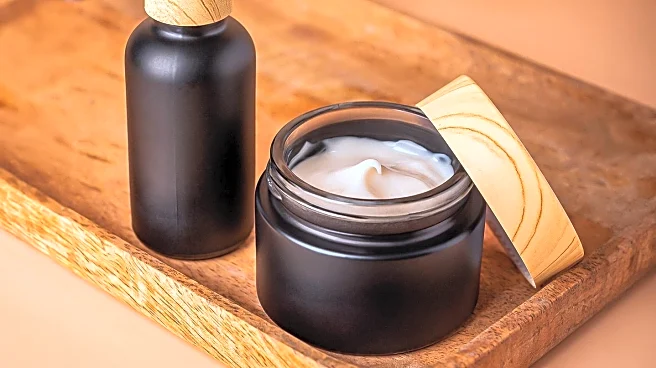What is the story about?
What's Happening?
Exosome-based skincare products are gaining popularity, claiming to rejuvenate and regenerate skin by addressing signs of aging. However, dermatologists and cosmetic chemists express skepticism about their efficacy due to a lack of scientific evidence and industry regulation. Exosomes, derived from human stem cells or platelets, are touted for their potential to enhance skin repair, but experts argue that the products hit the market prematurely without sufficient research to support their claims. The hype surrounding these products often outweighs the proven results, leading to consumer confusion and potential safety concerns.
Why It's Important?
The rise of exosome skincare products highlights the challenges in the cosmetic industry regarding product claims and consumer safety. Without standardized regulations or comprehensive scientific backing, consumers may be misled by marketing promises that lack substantiation. This situation underscores the need for more rigorous testing and transparency in the skincare market to protect consumers and ensure product efficacy. The debate also reflects broader issues in the beauty industry, where innovation often outpaces scientific validation, potentially leading to regulatory scrutiny and changes in industry practices.
Beyond the Headlines
The controversy over exosome skincare products raises ethical questions about the use of human-derived materials in cosmetics. It also highlights the importance of consumer education in navigating complex product claims. As the industry evolves, there may be increased pressure on companies to provide clearer evidence of product benefits and to adhere to stricter regulatory standards. This could lead to a shift towards more scientifically validated skincare solutions and greater accountability in product marketing.

















